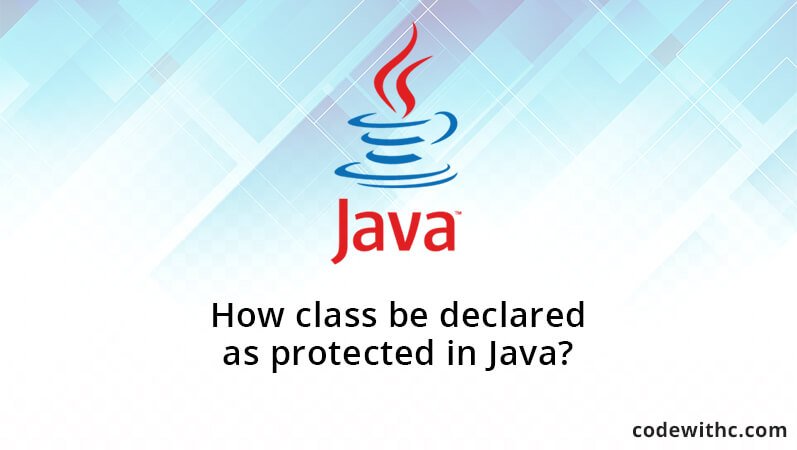Protected keyword before a data member or function or any person in category means that that member or function is obtainable to all or any classes in the bundle, as well as all sub classes in other plans.
Therefore declaring a class as protected means that it’s accessible to the present program as well as sub programs. Now there is no idea of sub programs in Java, which means this is not legal in Java. You could declare internal classes as private or safe, but it isn’t allowed in external classes.
So only 2 scopes is expected from a category, obvious in same deal (no keyword) or obvious is other deals too (open public keyword).
Determining a field as protected makes that field accessible inside the offer as well as beyond your bundle through inheritance only (Only inside the kid class).
So If we are permitted to make a category protected then we can get access to it inside the deal very easily but also for accessing that category beyond the bundle we first need to increase that entity where this category is identified which is its offer.
And since an offer can’t be lengthened (can be brought in), determining a class as protected will again make it package-private which is comparable to defining it as default which we can already do. Therefore there is absolutely no advantage of determining a class private it’ll only make things ambiguous.
We are able to declare it but there is absolutely no point in declaring a category as protected. Secured class users have the same presence by private except that it can also be reached from its inherited classes.
Since there is no such notion as ‘subpackage’ or ‘package-inheritance’ in Java, declaring school safeguarded or package-private would be a similar thing.
You may declare it as nested and internal classes as protected or private, though.







